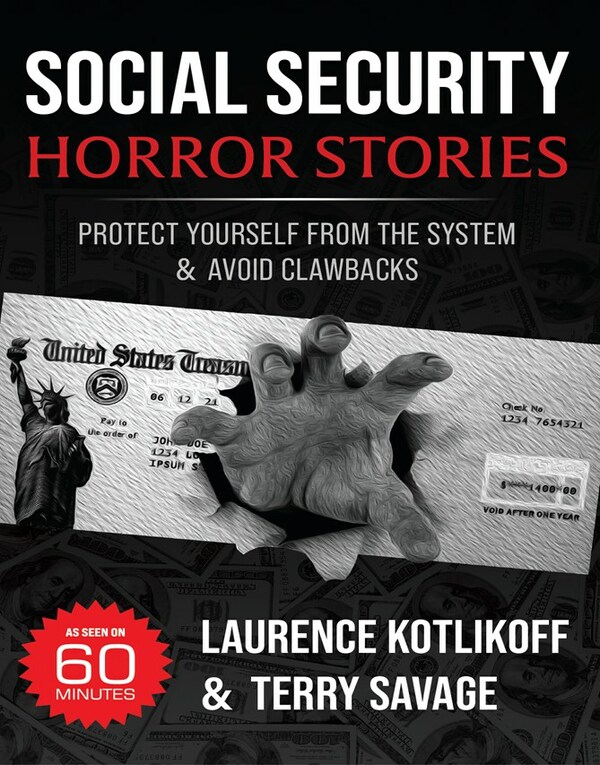A New Book from Larry Kotlikoff and Terry Savage Just Released and as Seen on 60 Minutes!
Social Security is Terrorizing Retirees and the Disabled Because of Its Own Mistakes!
Social Security is clawing back $21.6 Billion in mistaken overpayments to elderly retirees and disabled people because the agency miscalculated benefits, often for decades! It could happen to you – or your parents. Social Security has unchecked power. If you don’t repay their mistakes, they simply stop sending your monthly benefit!
Now a new book — Social Security Horror Stories –– Protect Yourself from the System and Avoid Clawbacks – by Laurence Kotlikoff (co-author of the best-selling Get What’s Yours From Social Security) and nationally syndicated personal finance columnist Terry Savage (author of The Savage Truth on Money), reveals the secrets of avoiding clawbacks and other “scams” perpetrated by an agency that often deliberately misleads claimants into taking the wrong benefits at the wrong time — mistakes that cost a small fortune.
Kotlikoff and Savage described these Horror Stories on 60 Minutes, where Anderson Cooper expressed his dismay that the Social Security Administration refused to talk on-camera in its own defense. That’s because something is terribly wrong when a government agency openly terrorizes our most defenseless citizens.
What plans can you make to protect yourself and ensure you get the benefits you deserve, while avoiding costly mistakes and clawbacks? This book is more than a warning; it’s a clear guide to avoiding your own Social Security horror story.
A review copy of the book is available upon request. The Kindle and print editions are available on Amazon. An audio book will be out soon.
Note: This book is not about the future solvency of Social Security, although the authors are prepared to discuss that issue. This book is about the current situation – and the unfair bullying that the Agency has been perpetrating upon the most dependent Americans.






